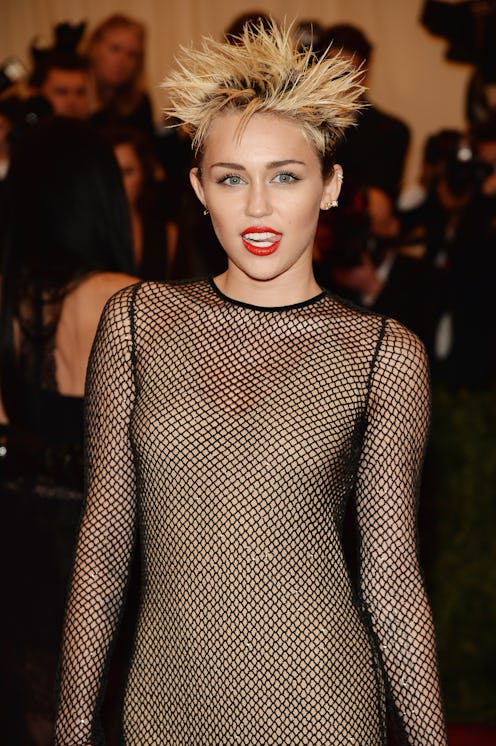Entertainment
Miley's New Single: Reinvention or Phase?
We all remember our late teens: Dancing while holding up red cups, telling our parents that we can say what we want, forgetting the "haters," waiting in line for the bathroom, trying to do lines in the bathroom...
Wait, what?
Alright, that may not be everyone's high school experience, but some of us lived it. Most notably, apparently, Miley Cyrus. The singer relays her experiences in her new single, "We Can't Stop", which was released Monday.
After finding success with Hannah Montana and hits like "Party In the U.S.A.," Cyrus' been steering away from her bubblegum pop Disney days and twerking towards rap and R&B. She's in good company to do so: "We Can't Stop" was produced by hip-hop powerhouse Mike Will Made It (who also produced tracks like Ciara's "Body Party" and Ace Hood's "Bugatti"), and her new album features appearances by Pharrell, Future, Will.i.am, and Dr. Luke.
So then why does her song — with its lyrics about parties, sweaty bodies, and "homegirls" with "big butts" — and her much more adult sense of style seem like an adolescent phase?
After all, other artists have been able to reinvent themselves with nary an eye roll. Back in 2002, another Disney pop star, Justin Timberlake, went through a musical transformation with his first post-boy band solo album, Justified. The album had an R&B influence and was produced by hip-hop powerhouse producers The Neptunes and Timbaland. Critics loved it. It was a reinvention, and a turning point in his career that allowed him to enjoy consider commercial success.
So what makes Cyrus' transformation a phase versus a reinvention? Apparently, her style of music. Aside from the chopped vocals and hard-partying lyrics, Cyrus' new single doesn't sound that different from the singer's old singles, and it's pretty similar to what's already out there. A mid-tempo love song to partying? Have you heard Avril Lavigne's "Here's to Never Growing Up"?
While Justified would have been a departure either way, simply for the sake of it being Justin's solo debut, the R&B groove of songs like "Rock Your Body" was immediately evident. Justin also used the album to channel his personal life into his music, famously using his breakup with Britney Spears as inspiration for "Cry Me A River."
Miley drew from her personal life as well, although the well of her emotions didn't seem to run quite as deep for this single. She turned her discovery of her newfound, highly publicized love of partying into... a song about how much she loves partying.
Of course, we'll have to reserve complete judgement until Cyrus' album is released later this year. But Cyrus is perched on the brink of either a reinvention or a phase. If she digs deeper lyrically and does some more research into the world of hip-hop, it could be a critically successful turning point in her career. But if she continues to follow the path the "We Can't Stop" sets up, her transformation is really only about her edgy looks and how hard she can party. And that's just an adolescent phase set to music.
Follow Caroline at @ugh_Caroline
Image: Getty Images
